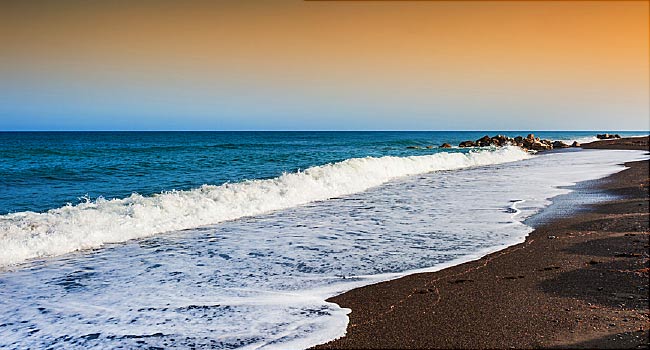
Is COVID-19 in the Water?
April 9, 2020 — When Gov. Brian Kemp of Georgia issued his state’s stay-at-home order, it included an exemption that surprised many: He declared all the beaches in the state open, overruling local officials that had closed theirs. Their concerns related to social distancing and the fear their small coastal communities would be overwhelmed. And experts agree, it’s not the beach itself that’s a threat as much as it is other beachgoers.
There is one small way the water might pose a hazard. Kimberly Prather, PhD, director of the NSF Center for Aerosol Impacts on Chemistry of the Environment, says there’s a slim chance that in areas where ocean water mixes with untreated wastewater contaminated by the virus, the churn of the waves could aerosolize it, and wind could carry it back to shore. When raw sewage reaches the ocean, nearby beaches should be closed to swimmers, so the risk would be to people on the sand.
Coronavirus has been found in feces, which can wind up in the waterways from untreated wastewater or after a large storm, when rainwater carries it in. Researchers have found that bacteria in the water could cause more than 90 million cases of gastrointestinal, respiratory, ear, eye, and skin-related ailments very year in the U.S.
So it’s conceivable there might be coronavirus in ocean water near sewage runoffs, says Charles Gerba, PhD, professor of microbiology and immunology at the University of Arizona. He has studied coronaviruses in water and found they can survive for 2 to 3 days. But it remains unclear whether the coronavirus in fecal matter is infectious.
“I’d be more worried about hepatitis, swimming in raw sewage discharge, or many of the other pathogens,”” he says. “They present a far greater magnitude of risk, even if it turns out that coronavirus is transmitted by water.”
Prather, too, says she’s less concerned with the water itself. “My concern was that at the beach where it is breezy, 6 feet [of social distancing] might not be enough,” she says. “If someone is infected and does not know it, it is possible they will breathe out aerosols, not droplets, which are much smaller and can be carried further distances in the breeze.”
In other words, at the beach, your concern probably shouldn’t be about the water, but other people. If you’re going to take a walk or work out along the shoreline, you should aim to maintain more social distance than usual.
“The best analogy is, how far do you move away from a smoker if you don’t want to smell the smoke?” Prather says. “The aerosols in smoke will behave in a similar manner.”
Swimming in freshwater is equally safe, Gerba says. And as long as a swimming pool is well maintained, chlorine will kill any virus.
As for drinking water, Gerba offers reassurance there, too. “We don’t have any evidence that it’s transmitted by water,” he says. And in the U.S., drinking water treatment requires a 99.9% reduction of viruses. “I feel confident in the tap water.”
Sources
The New York Times: “In Georgia, Shelter-in-Place Order Closes Businesses and Reopens Beaches.”
CDC: “Water and COVID-19 FAQs.”
Environmental Health: “Estimate of incidence and cost of recreational waterborne illness on United States surface waters.”
Charles Gerba, PhD, professor, environmental science, University of Arizona Water & Energy Sustainable Technology Center.
Kimberly Prather, PhD, distinguished chair in atmospheric chemistry, distinguished professor, Scripps Institution of Oceanography and the Department of Chemistry and Biochemistry at UC San Diego.
© 2020 WebMD, LLC. All rights reserved.
Source link
